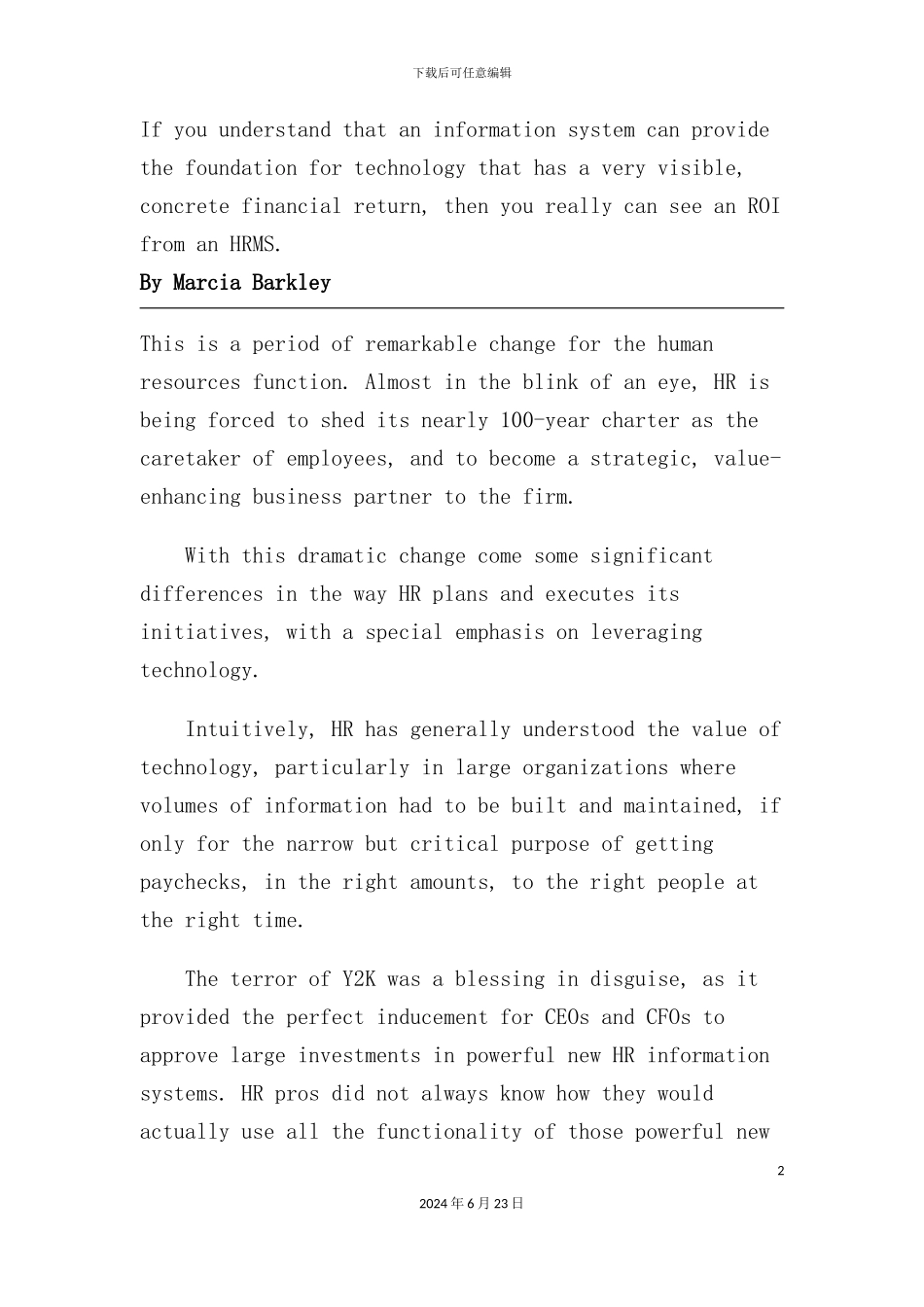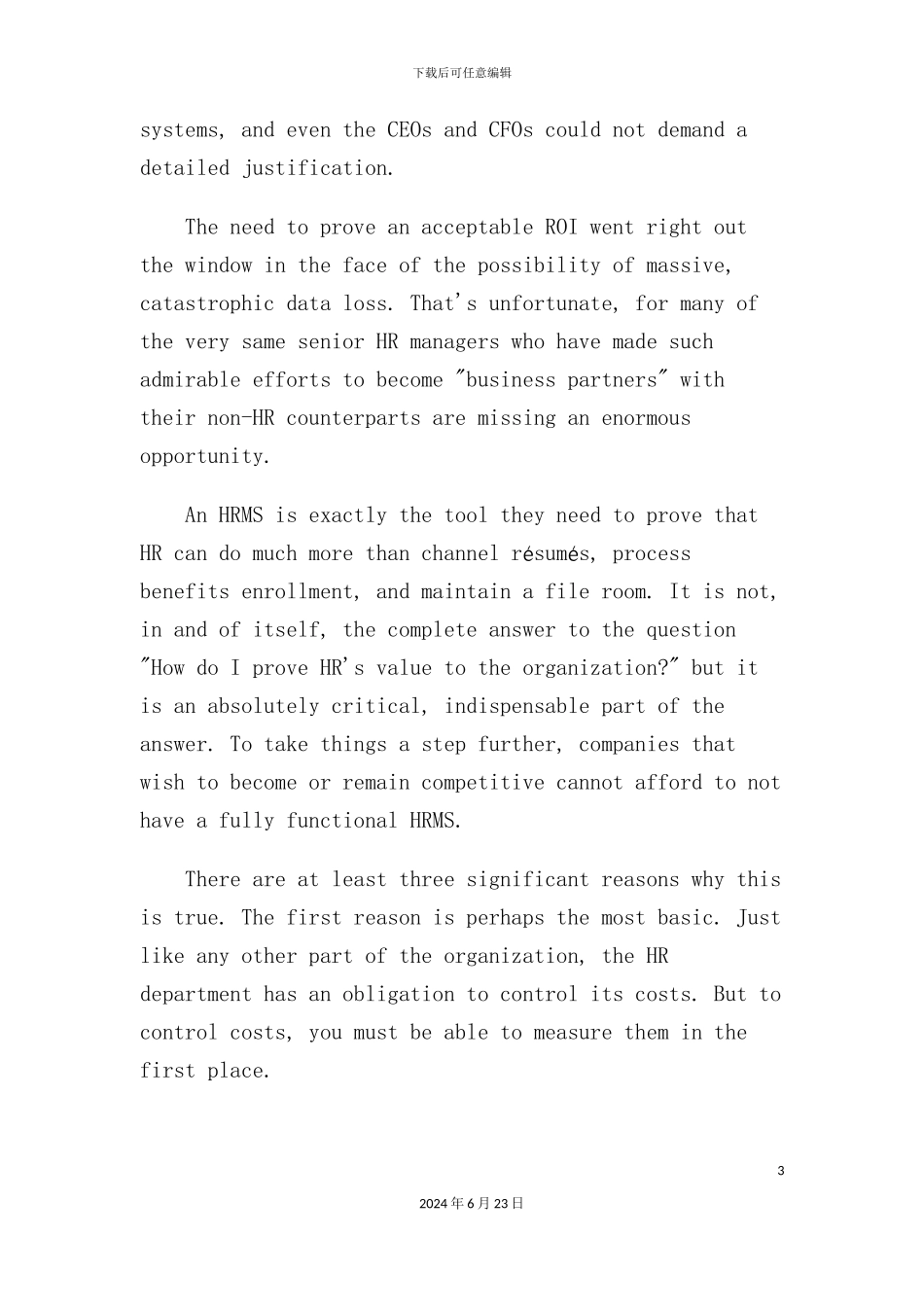下载后可任意编辑人力资源管理系统的隐藏价值12024 年 6 月 23 日下载后可任意编辑If you understand that an information system can provide the foundation for technology that has a very visible, concrete financial return, then you really can see an ROI from an HRMS. By Marcia Barkley This is a period of remarkable change for the human resources function. Almost in the blink of an eye, HR is being forced to shed its nearly 100-year charter as the caretaker of employees, and to become a strategic, value-enhancing business partner to the firm. With this dramatic change come some significant differences in the way HR plans and executes its initiatives, with a special emphasis on leveraging technology. Intuitively, HR has generally understood the value of technology, particularly in large organizations where volumes of information had to be built and maintained, if only for the narrow but critical purpose of getting paychecks, in the right amounts, to the right people at the right time. The terror of Y2K was a blessing in disguise, as it provided the perfect inducement for CEOs and CFOs to approve large investments in powerful new HR information systems. HR pros did not always know how they would actually use all the functionality of those powerful new 22024 年 6 月 23 日下载后可任意编辑systems, and even the CEOs and CFOs could not demand a detailed justification. The need to prove an acceptable ROI went right out the window in the face of the possibility of massive, catastrophic data loss. That's unfortunate, for many of the very same senior HR managers who have made such admirable efforts to become "business partners" with their non-HR counterparts are missing an enormous opportunity. An HRMS is exactl...


